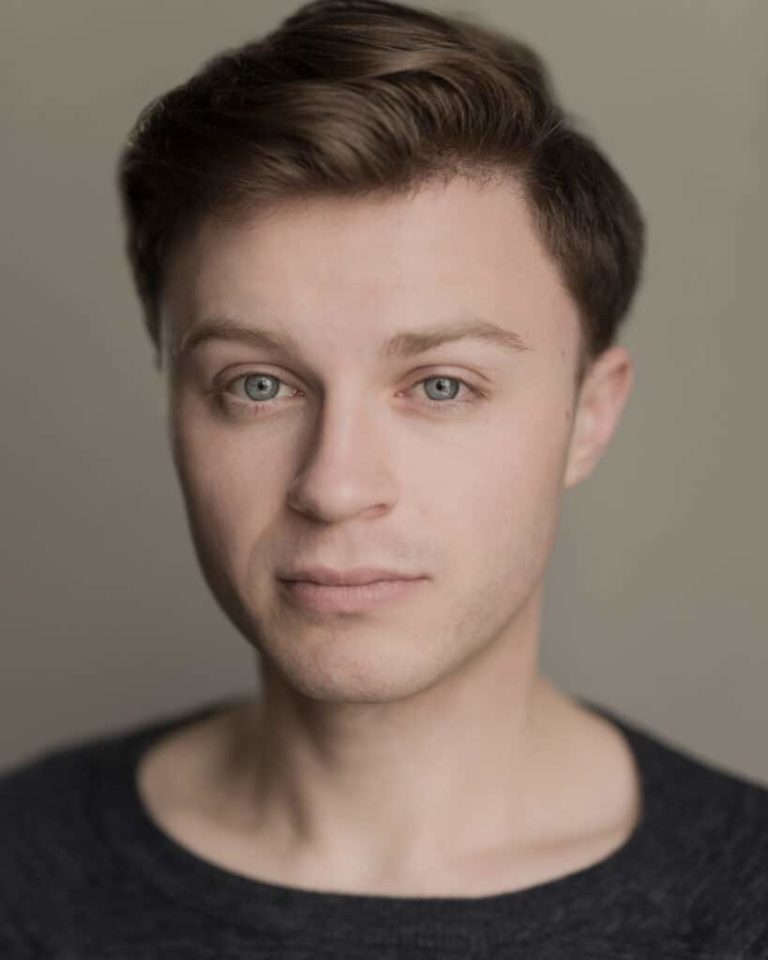
Various queer men spoke to PinkNews about what it is like living with disordered eating. (Supplied)
It’s a simple fact that LGBT+ people are at high risk of developing eating disorders.
A Stonewall study found one in eight LGBT+ people experience an eating disorder and, according to a Beat survey, 37 per cent of LGB respondents wouldn’t feel confident seeking help.
Researchers recently found 18 per cent of boys who identify as gay and 13 per cent of boys who are bisexual experience eating disorders, compared with three per cent of heterosexual boys.
Gay men have battled eating disorders for decades, which are often connected with anxiety and confusion regarding sexuality, but many still struggle to access treatment.
Here are the stories of five gay men who have lived with eating disorders.
Lawrence Smith: ‘I felt destined to fail at existing as an adult’

Lawrence Smith, 29, is an actor and singer who had long-term issues with anorexia nervosa, diabulimia and general disordered eating.
“A key factor in my issues was lack of confidence in myself,” he explained.
“I felt destined to fail at existing as an adult, so I adopted the misguided belief that, were I to be ill, I wouldn’t need to engage with the real world.
“This had dangerous effects on my Type One diabetes.”
Lawrence also possessed a hatred of his body and the diabetes he’s had since a young age and used his eating disorder as punishment.
“I’ve been out as a gay man for ten years,” he said.
“I was lucky with the reaction to my coming out, but I had a lot of internal confusion proceeding this, and I was convinced I didn’t deserve love.
“I was surrounded by folks my age discussing their sex lives, so I felt isolated even further with my added eating disorder habits.”
Lawrence wishes his treatment focussed more on his diabetes, as none of his therapists were well versed in diabetes, so diabulimia continued to affect him.
He also highlighted the need to stop viewing eating disorders as a “women’s illness”.
“When I was seeking help 12 years ago, the resources I received all focused on female experiences of eating disorders. I felt absolutely alienated.
“I can only hope things have improved over the years, especially when the number of gay men battling eating disorders has risen.”
Jason Wood: ‘Embracing my vulnerability has been so scary’
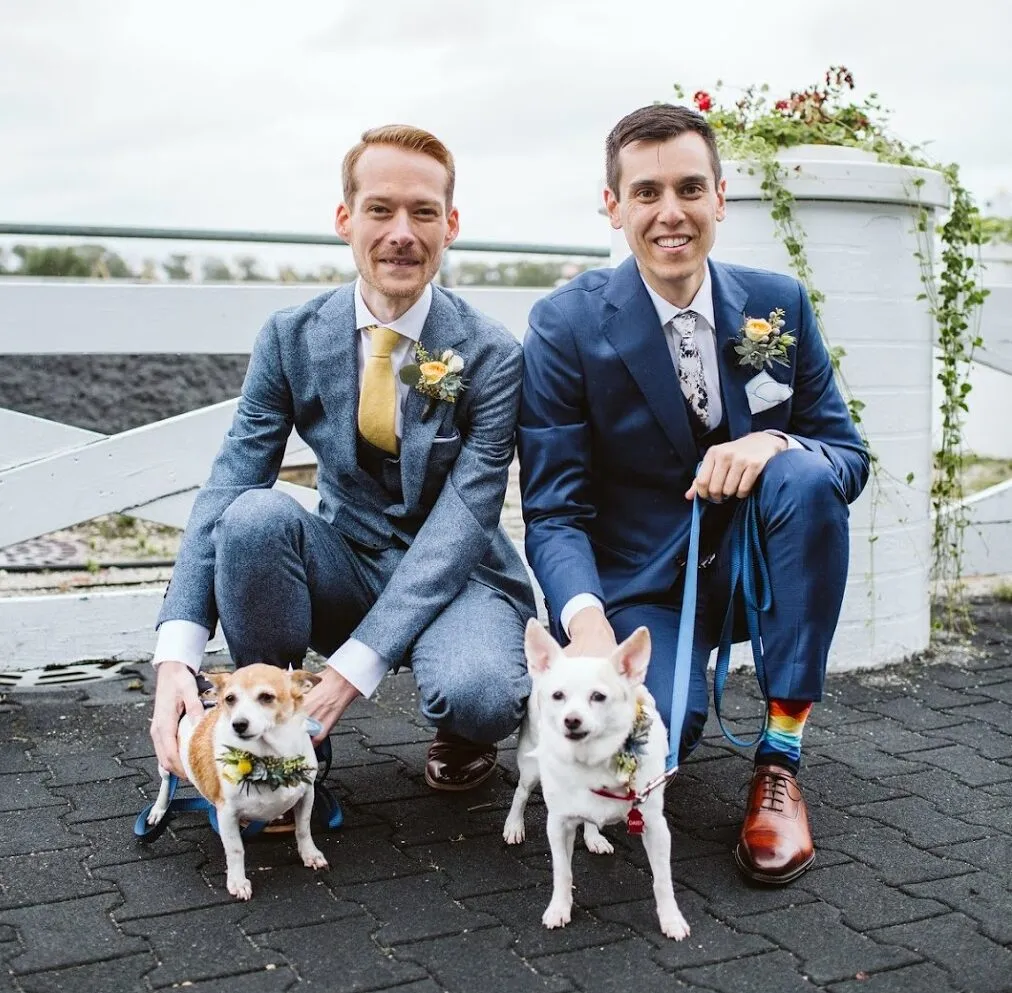
Jason Wood, 35, is an office events coordinator and blogger who has struggled with orthorexia.
“After joining Weight Watchers in high school I became fixated on counting calories, which made me feel in control during turbulent times,” James said.
“Several years later I was classified as high risk for colorectal cancer, the same disease that took my dad when I was 11.
“I didn’t want to die young so I developed a mental list of ‘good’ and ‘bad’ foods based on fad diets and clean eating influencers, whose diets I viewed as the epitome of health.”
James never thought he had an eating disorder, as he didn’t match the stereotypes.
He realised he needed help after an outburst in a restaurant when the food he wanted wasn’t available.
“My husband expressed concerns, so I scheduled an appointment the following week, but it wasn’t until months later I realised orthorexia was what I was battling,” he said.
James found it difficult actually finding treatment, however, as a man with a lesser-known eating disorder, and saw several professionals before receiving appropriate care.
Fortunately, he’s now in recovery and wants other gay men to know they deserve help.
“Embracing my vulnerability has been so scary,” he said, “but also really rewarding because I’m getting my life back.”
Dr Sunni Patel: ‘I just wanted to be accepted and avoid bullying for my size’
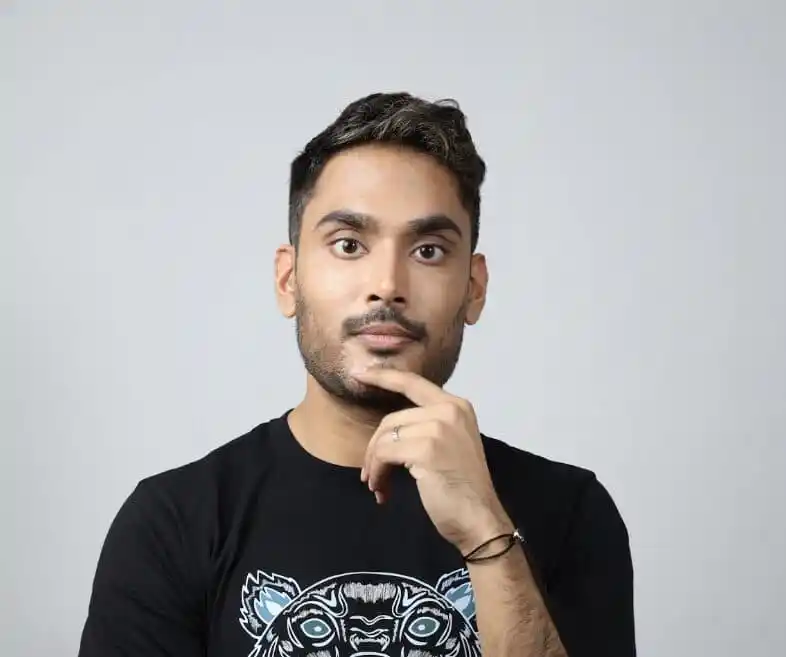
Dr Sunni Patel, 35, is a business director and gut health advocate who suffered from bulimia and excessive fasting as a teen.
“My issues stemmed from the insecurity of how I looked,” he shared.
“Coming from an Asian background there’s an unhealthy focus on how one looks and acts, and I gained weight as a teenager, so fasting felt like a quick way to lose weight and seem attractive.
“I just wanted to be accepted and avoid bullying for my size.”
Sunni is still on his coming out journey, but anxiety about how others may perceive him made him body-conscious.
“Coming from a conservative background and studying in healthcare meant I couldn’t discuss my eating disorder,” he added. “I was ashamed of my struggle, so I chose to self manage it.
“The gay dating scene also seems very body focused and extremely difficult to navigate because the easiest access to the gay world is through hookup apps and porn.
“It was hard to find people who understood what I was going through.”
Sunni wishes he was able to confidently talk about his struggle because he still battles with BDD (body dysmorphic disorder).
When asked his advice for fellow gay men, Sunni wants people to remember that others in the community shouldn’t pressure you to be a certain way: “Be you and find contentment in that, then you’ll attract the right people.”
Sam Thomas: ‘I would hide in the toilets during lessons and eat’
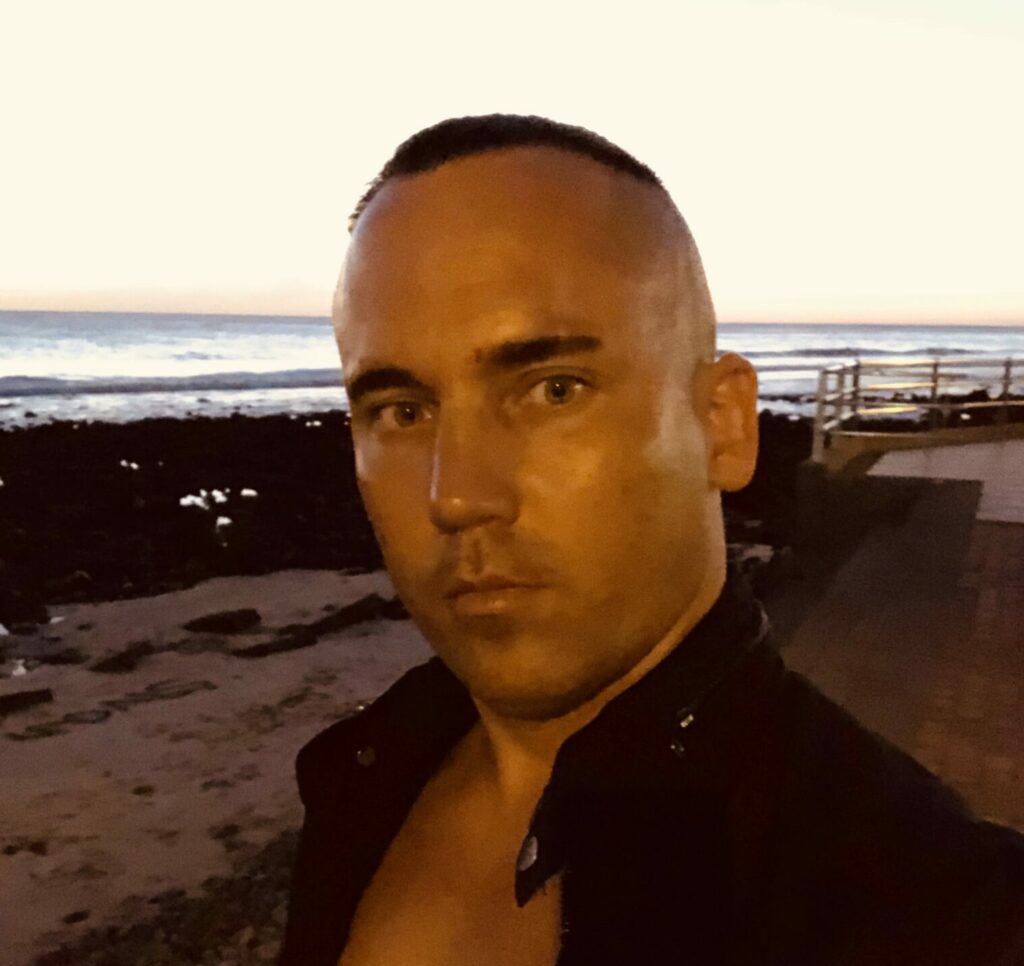
Sam Thomas, 35, is a writer and mental health campaigner who developed bulimia as a result of homophobic bullying in school, which manifested into CPTSD (complex post-traumatic stress disorder).
“I would hide in the toilets during lessons and eat,” Sam said. “Over time I evolved from bingeing episodes to bingeing and purging.
“Hardly anyone knew or had reason to be concerned.”
Sam attempted to seek help at 16 and again at 18 but never received treatment for bulimia. Fortunately, he was eventually able to recover, but his bulimia was replaced with alcoholism years later.
“At 18 the doctor focused on my depression rather than bulimia, I was put on antidepressants and referred for counselling,” he continued.
“I’ve often wondered if I were a woman with the same symptoms I might’ve been referred to eating disorder services.
“The concept of being a gay man having eating disorders was unknown 20 years ago. There was no information easily available, nor were there any support groups.”
Sam wants to remind readers that people from all walks of life have eating disorders: “Eating disorders are indiscriminate and anyone can be affected.”
Cassius Powell: ‘Seeing my father in tears encouraged me to seek help’
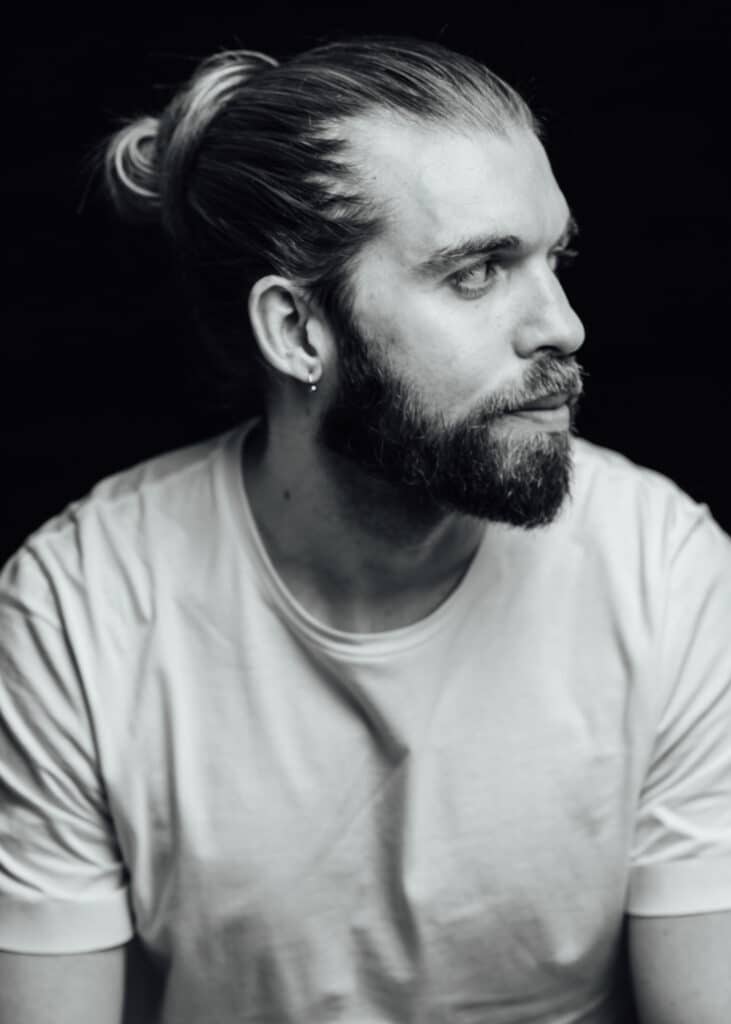
Cassius Powell, 38, is a dancer and personal trainer who was diagnosed with anorexia at 15, which was a result of low self-esteem and confusion in his teens.
“I placed a lot of self-worth on my physicality,” Cassius explained.
“I read an article about Leonardo DiCaprio that became the catalyst for my eating disorder. I thought his size was why he was so desired. This was also wrapped up in my suppressed sexual desire for him.
“I quickly became obsessed with exercise and food.”
Cassius didn’t realise the impact of his eating disorder until he confessed to giving away food at school to his father.
“He broke down at the wheel as we drove home one night. Seeing my father in tears encouraged me to seek help.”
Cassius rebuilt his relationship with food following appointments with a dietician, but it’s taken a long time to realise his value isn’t measured by looks.
“Even now I sometimes catch myself over-exercising and being strict with food but, because I’m kinder to myself, I can manage it.”
Cassius’ eating disorder was impacted by suppressing his sexual identity until coming out aged 25.
“I felt like being gay wasn’t acceptable,” he said, “so I tried to shut off any gay thoughts or feelings, which of course is impossible to control.
“What is easy to control, however, is the food you put into your body.”
He also wishes more attention could’ve been given to the mental aspect of eating disorders during treatment, as well as the eating.
“It’s only in the last five years I’ve tackled my OCD, anxiety and depression, which were key factors in my eating disorder,” Cassius shared.
Speaking about stereotypes surrounding gay men and eating disorders, Cassius said: “I felt weak asking for help.
“What I’ve found hopeful is male celebrities sharing their eating disorder stories, such as Freddie Flintoff, Russell Brand and Caleb Followill.
“They’re helping challenge attitudes towards men with eating disorders.
“I didn’t have a dialogue with anyone when suffering from anorexia, but I’ve learnt that talking really helps.
“Others who are struggling should know that, even when you feel overwhelmed, you can work through this.
“You are not alone.”